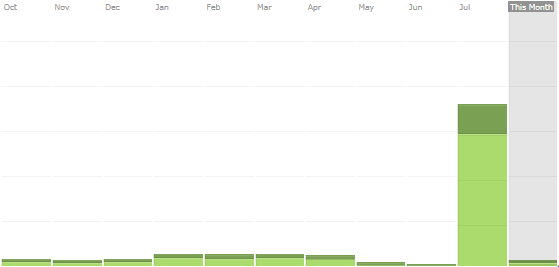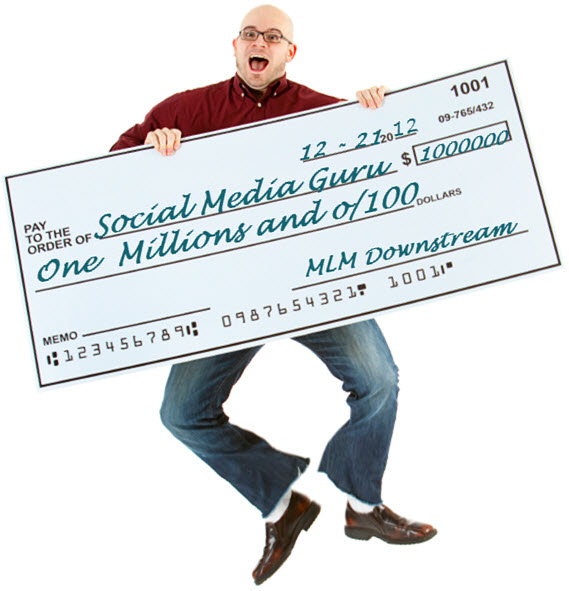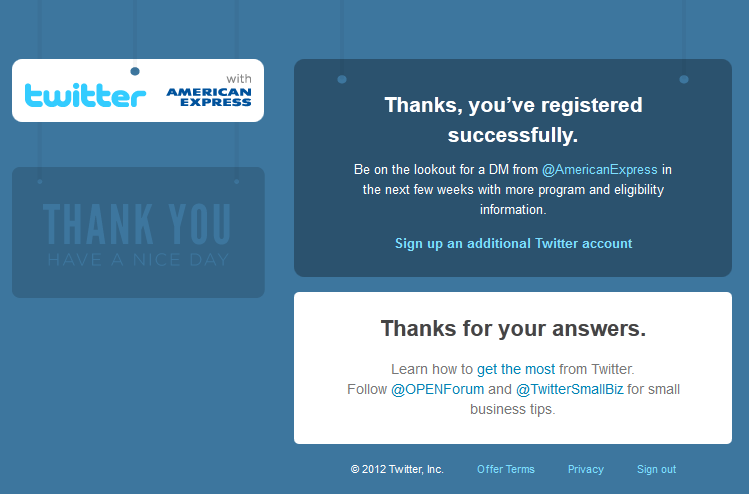The Next Google?
Facebook had their first tranche of insider lock ups expire yesterday & the stock ended off over 5%. Anyone who has ever invested for a significant period of time knows what the following graphic looks like: the collapse of a bubble.
What has caused such a poor performance for Facebook?
For starters, this couldn't have helped:
If they committed to spending big bucks with Facebook, how could they be assured a return on their investment?
Mr. Zuckerberg's response, according to one of the attendees: "That's a great question and we should probably have an answer to that, shouldn't we?"
Also harming Facebook...
- Absurd expectations created by the stock selling hype machine that is Wall Street.
- A perfectly executed timing of the IPO, where they went public right as their growth rate was cratering.
- The fact that blank banner ads get a higher CTR than the typical Facebook ad does.
- Many of Facebook's "active" users rarely visit Facebook.
- Sharing that 8.7% of their accounts are fake.
- The realization that there are more shares outstanding than many financial websites indicate.
- Things like long deleted Facebook photos still appearing online, the realization that the data is used for undesirable tracking & the spooky sense of "big brother" stuff that will only become more common over time, causing people to pull back with that they share on sites like Facebook.
- At some point with fresh IPO companies a declining stock price becomes a self-reinforcing cycle which makes it harder (and more expensive) to attract & retain quality employees.
The Real Next Google
Users do not want social in search, but even if they did Google can turn it on with a flick of a switch.
If you want to invest in "the next Google" at a valuation above $100 billion then the best way to do so is to buy Google.

I won't claim that Google's growth there has also passed through to online publishers. It many cases it has not, as Google has begun dominating their own results & pushing competitors below the fold.
SEO is Harder than Ever
Breaking into search with a new site is harder than ever. That is reflected in the static nature of the ecommerce market and just how many ill informed opinions there are about Google's various updates.
Unless you are already well trusted or are willing to hack websites, brute force SEO is getting much harder. Even getting a boatload of exposure like the following graph shows may have zero impact on Google rankings.

Other important trends are:
- The mobile interface being dominated by search ads & users being unaware of ads in search results.
- Search engines increasingly scraping more of the value from publishers & displacing the organic results by moving to paid inclusion.
- Search engines defining spam based exclusively on the mode of monetization.
- Search engines creating "relevancy" signals that they are themselves exempt from.
- Just recently Google has started testing only showing 7 search results on the front page for many search queries.
This does not mean that the opportunity of SEO has disappeared, rather that strategy becomes far more important as the market grows more challenging.
Public Relations
Social media is sold as being revolutionary, but its impact is generally more marginal. What matters is funding the baseline message that then gets syndicated across networks.
Due to the Filter Bubble (& format concision) most people won't question the depths of where they are wrong or dig deep into the background of a story, but rather syndicate the payola headline & biased research that PR professionals wanted them to see.
Out-of-context facts only need to sound good in 140 characters.
Reputation Management
Occasionally a company can be so idiotic that their Progressive(ly) incompetent behavior creates a categorical example of failing their customers. But that sort of failure only matters if it gets shared frequently on blogs & media sites off the social media platforms.
I haven't heard of anyone spending big money to try to have a Tweet rank lower, but people spend significantly trying to drive down bad search results.
Most Tweets are largely forgotten after a few days. A bad search result can create a progressive self-reinforcing problem that lives on as long as a brand does.
Social Media Platforms Begin Lockdown
It isn't just Facebook that has had problems. A number of the other social stocks have tanked.
The problem with social media is that it's performance hasn't been particularly stellar thusfar & they have only just begun to start screwing over people playing on their platforms. A big part of what caused Zynga to miss so badly on their last quarterly result was:
"Facebook made changes to their platform that favored new game discovery," he said. As a result, Zynga users "did not remain engaged and did not come back as often."
That change is in addition to gutting companies that specialized in optimizing Facebook pages & other companies which worked closely with Facebook. Further, Facebook's edgerank limits how many of your subscribers see your own message. They want you to pay once to build a following & then pay again to access the audience of followers you already built.
It is not just Facebook that is locking down their ecosystem. Twitter is headed down the same path: "I sure as hell wouldn?t build a business on Twitter, and I don?t think I?ll even build any nontrivial features on it anymore."
Many mobile start ups are also suffering from the same "saturated ecosystem" problem.
More Social Media Sites Launch
The economic recovery has been uneven & while the above platforms are imploding it hasn't stopped some of the founders from creating more platforms that will also compete for attention.
Why Social Media Isn't as Exciting As Claimed
All Users Are Not Created Equal

There is a difference between targeted search traffic & the stuff that people sell as "unlimited traffic for $6."
Social media can drive some conversions with coupons, but it can also make people (who would have converted anyway) expect coupons and discounts to purchase. Part of the problem with attributing anything to social media is so much of it can be attributed to activity bias. Anyone who follows you & similar business & so on is going to be more likely to convert in those areas. That they at some point in time were on a large social network doesn't mean that the social network added any value to the sequence or caused a conversion.
Even if you know exactly how influential people are it still wouldn't mean that you would be able to influence them (generally the more popular someone is the less receptive they are to pitches). And generally speaking traffic on your site is worth more than traffic from social media sites, as it is already more targeted. This is why traffic exchange systems suck...those atop the pyramid suck most the real value out of it while those lower in the system give away their visitors for scraps.
The #1 rule of online traffic is that relevancy is more important than volume.
False Sense of Closeness & Empathy (Cuts Both Ways)
Online petitions have a low cost (go nowhere & click a mouse), so even in large numbers they usually don't mean much. Whereas people who go through barriers to entries & jump over hurdles are far more committed to a goal.
With sites like Twitter there can be a wow factor in that there is a false sense of closeness, but in reality many celebrities pay others to tweet for them and sell tweets.
And every bit as fake as the "celebrity who really cares about you" there are also the enraged non-customers who try to leverage social media to level the playing field. But in most cases those were never going to be good relationships anyhow. For most people the best solution is to ignore them.
Hits Can Be Somewhat Unpredictable
In addition to the fickle here today, gone tomorrow nature of social media, the results are typically quite unpredictable. What is even more challenging is that you can optimize for relevancy or virality, but to try to guarantee one you usually have to sacrifice signifcantly on the other. That means that either you can get links & audience, or you can create some conversions, but it is quite hard to do both.
Further, popularity on such networks tends to fade quickly (unless you keep going back to the well). But at any point in time even newer networks can decide to change how they feature you & cut out whoever they want to, and the more often you keep going back to the same network the more beholden you become to it. Invariably all these social networks that start off as being somewhat open close down & control the ecosystem to boost monetization as growth slows.
Signal Creation vs Amplification
It is easy to point to success like Double Fine & Ouya as proof of the power of some of these networks, but some of that success is due to past success. Anyone who loved playing Psychonauts would love to invest in helping to create another release.
P&G can lay off some of their marketing department because their brands already have such a strong share of voice across all mediums.
And Louis CK can sell a million Dollars worth of his own downloads and a hundred thousand tickets fast because he is already well liked.
Mainstream media writers can offer tips on how to have a dead cat bounce on Twitter. That isn't so hard for the mainstream media to do given how much they dominate Twitter trends & the top shared stories on Facebook. However if you don't have an organic audience channel & a built in cumulative advantage then likely either your story will go nowhere, or even if you share something great what will end up happening is someone else with more distribution will rewrite your story and displace you as the lead source.
Social media can have value as a signal amplification tool, but if you do not already have a separate audience base (via email, RSS, or some other similar channels) then time spent on social would likely be better spent building up some of those other channels first. If you are not building off an organic audience channel then social media promotions will typically fall flat.
Dominate a Small Pond
I don't think I would have done well with SEO if I spent most of my time on the largest sites when I was new to the industry. What helped me along was joining the great crew on SearchGuild who taught me a lot in a short period of time. On smaller sites we can become a bigger fish in a small pond.
The fatal attraction with large sites is that the audience is large, but it is largely inaccessible. The largest sites are the most appealing to the least interesting people. Or, put another way, we are most alike where we are the most vulgar & the most unique where we are the most refined. This is why even when we are on the large sites we typically pay far more attention to what our friends say or do than the ads on those platforms that take thousands of impressions to generate a single click.
There is nothing wrong with spending some time on social sites for fun, but if it becomes the bulk of your publishing time & effort you are probably contributing far more than you get back. Especially when you consider that a lot of the deep insights & continuations of stories that once happened on blogs has fell by the wayside for quick temporary Tweets that disappear into nothingness. Many companies have mistakenly abandoned blogging & will have to experience the pain of starting over when some of these networks go away to appreciate the depth of the error.
Why Marketers Promote Social Media
Addiction to "the New"
If you promote things that are new that buys further coverage because you are seen as being innovative.
Twitter allowed spam & had few people employed fight it. Why? More "users" equates to a higher growth rate, which equates to a higher market valuation on subsiquent investment rounds. Twitter stated that in 2009, 11% of their tweets were spam.
During a social media ponzi bubble a whitepaper about Twitter of Facebook has sizzle because it allows you to leach off the story of that broader platform. And so long as those companies are raising money or trying to go public they want to show the maximum growth possible, so they are unlikely to crack down on forms of marketing manipulation that help growth their platform size and valuation. After they are public though & growth has slowed their approach toward controlling their platform will become much more adversarial.
Google has been public for nearly a decade now & if you speak in the language of SEO that is a term that has already been well defined through the dominant market player.
A Desire to be Seen as a Broader Service
If you are only seen as being about "SEO" then anytime Google forces drastic changes onto the market you are seen as being of limited value & thus at great risk of being washed away. This is even more risky if you are leveraging up and trying to raise funding. But if you claim to be more generalist it allows the frog to turn into a prince, as you have more "growth" opportunities in the near future.

Give it a Different Name
A lot of people try to slag off SEO for self-promotion & then say "don't do spam like the SEOs, instead do x."
And if you read off the list of items that are represented in the "x" invariably it reads like an SEO checklist.
So why do people try to redefine SEO? A number of reasons:
- if they can create a new term that they "own" then anyone who shares it is building the value of their company
- they can use polarizing marketing to capture attention & then differentiate themselves from what they actually do by claiming to be doing something else
- some of the most egregious SEO spammers (eg: Jason Calacanis) never could have got away with running their projects as they were without first distancing themselves from the SEO market
The MLM Factor
In most MLM schemes step 1 is often "follow us" with step 2 being "spread our message" (or, feed us your young, get your friends to hate you, sell your soul, etc.)
This same factor is baked into social media services. Rather than going directly to money though it uses attention as an intermediary.
I am not saying that asking people to follow you is necessarily bad, but if you tell people that social media will change the world and that they should follow you for tips then of course that is a great way to get a bunch of desperate, ignorant & shameless newbs to syndicate your spin. If those people are re-defining old school SEO techniques using a new vernacular they are both the customer (buying into the re-marketing of old concepts) and the product (evangelist spreading false gospel & generating social proof of value).
The above message is never stated in the various "correlation analysis" charts that aim to prove the value of social media to SEO.
Given how easy it is to manipulate social media, even if they are not doing well it is easy for someone like Ellory Bennette to sell the image of success.
Noise vs Signal
There are loads of ways to create a core baseline social "signal" on the cheap. Newt Gingrich was called out for having some fake Twitter followers. There are boatloads of services & tools out there targeting all the social networks & free hosts: Facebook, Twitter, MySpace, YouTube, Blogspot, Wordpress, Tumblr, StumbleUpon, Reddit, Digg, Pligg, and even Pinterest.
Given how Newt got "called out" for having fake followers, I wouldn't be surprised to see some marketers buying fake followers for other convenient targets to create a story to sell.
Selling a Bag of Smoke
While composing this, a spam email hit my inbox stating the following:
It's a fact: more people find out about your business on Facebook or Twitter than on search engines. Making these sites work maybe tricky for you, but it s business as usual for us. Let us improve your visibility and enhance your image. It s part of our complete Internet Marketing package. We ll be more than your friends --- we ll be your partners."
Social metrics are easily gamed. If you just want numbers not only are they sold by the social networks as ad units, but they can be had in bulk on sites like Fiverr.

Probably the best comment I have ever read about the "bag of smoke" concept was from Will Spencer:
SEO's like to sell social signals as ranking factors because social media marketing is an easy product to deliver while collecting good profit margins.
The fact that it doesn't work... doesn't seem to bother those people.
The "good guys" in the SEO business aren't the people who parrot Google's lies to a wider audience; the "good guys" in the SEO business are the guys who make their clients money.
Ignorance of Relevancy
Search engines may put out research about social networks like Twitter, but would Google count Twitter as a primary relevancy signal without owning Twitter? Color me skeptical.
Even more laughable than SEOs selling social media as the key to SEO is their open ignorance of the political nature of various relevancy signals.
- Does Facebook sell likes? Yes. Why would Google want to subsidize a competing ad network? It isn't hard to notice Google's dislike for Facebook through their very public black PR campaigns.
- The same sort of "why would I subsidize a competitor" issue is also in place with Twitter. They sell retweets & follows, so why would Google want to subsidize that?
- Google counts YouTube ad views as organic views, but they own it & they only rolled out universal search *after* they acquired YouTube.
Source: http://www.seobook.com/social-media-bubble-implodes
link building use seo seo tools seo tool land seo leaders online


Walang komento:
Mag-post ng isang Komento